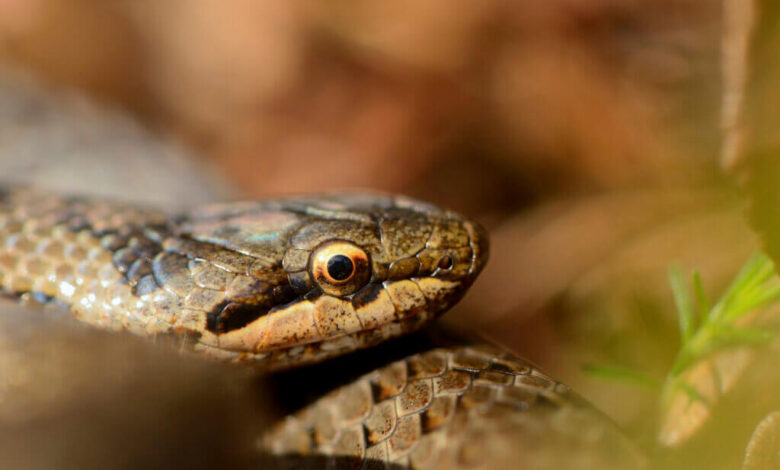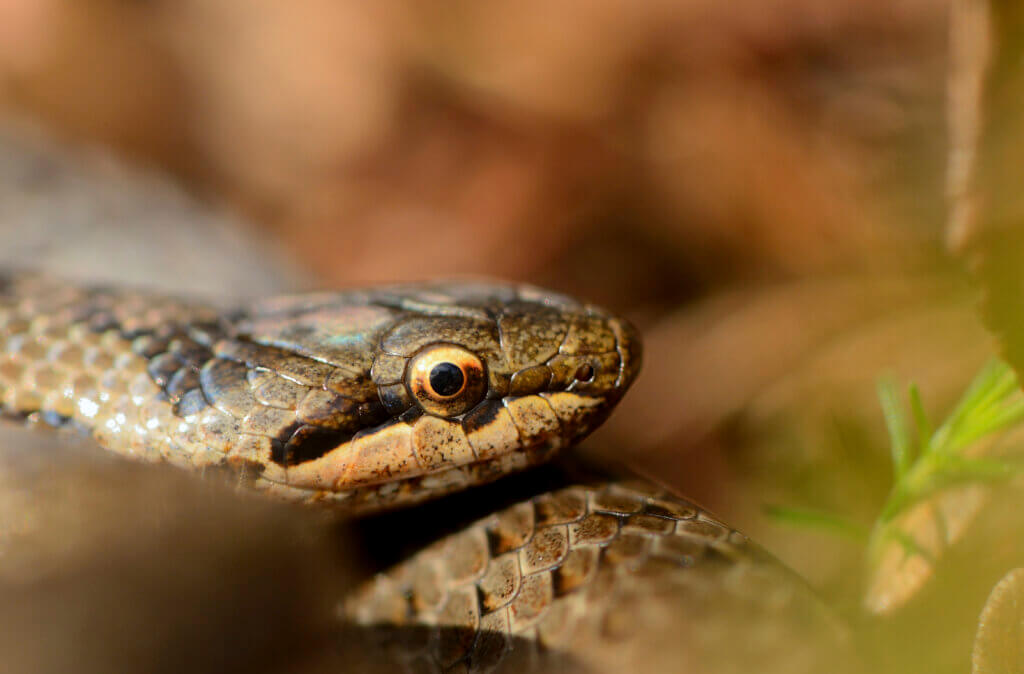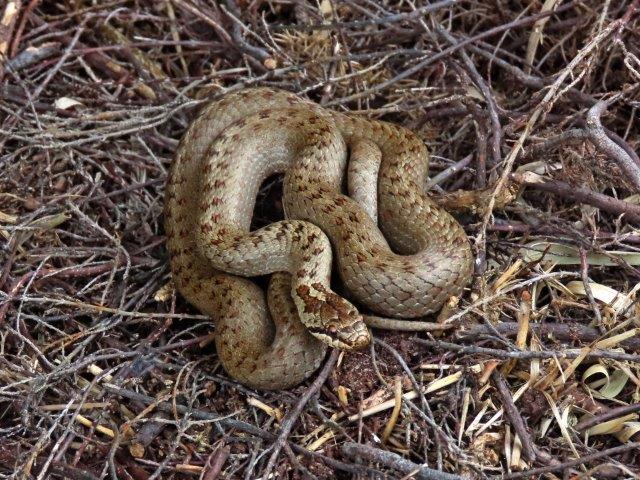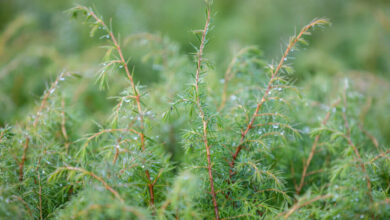RSPB press release – Slithering success for UK’s most secretive snake – Mark Avery

Slithering success for UK’s most secretive snake

- The Smooth Snake is the UK’s rarest native reptile, found only on dry heathlands in southern England and restricted to sites in Dorset, Hampshire and Surrey.
- Reintroductions to restore the historic range of Smooth Snakes includes a site in Devon where the RSPB, Amphibian and Reptile Conservation (ARC) and Pebblebed Heaths Conservation Trust have worked together to boost numbers – 39 individuals have now been recorded, a 25% increase from the previous survey.
- Their increase is thanks to the dedicated monitoring and conservation efforts by reserve teams, volunteers and partners to restore and protect precious heathland habitat that also benefits a range of other unique wildlife.

Conservationists are celebrating success 16 years on from reintroducing Smooth Snakes to a site in Devon. With 39 individuals recorded last year, reserve teams, volunteers and partners are highlighting the 25% increase from the previous highest total of 31 snakes in 2023. These figures are testament to the collaborative efforts between the RSPB, Amphibian and Reptile Conservation (ARC), Pebblebed Heaths Conservation Trust and Clinton Devon Estate to restore Smooth Snakes across their historic range. Heathland restoration and a team of dedicated volunteers have also been vital for the species’ recovery.
Smooth Snakes are small and slender, growing to 60-70cm in length. Named after their smooth and flat scales, this non-venomous snake is grey or dull brown in colour with a unique heart-shaped “crown” head marking which can be used to identify individuals. They are restricted to heathland areas in Dorset, Hampshire and Surrey where they hide within the dense vegetation, rarely basking in the open. Monitoring Smooth Snakes is challenging due to their secretive nature and the species was only formally discovered in the 1850s. Whilst the total population is partly unknown,1600 Smooth Snakes were recorded during ARC’s monitoring programme from 2019-2024.
To improve their numbers and restore their range, the RSPB worked in partnership with ARC and Pebblebed Heaths Conservation Trust to reintroduce Smooth Snakes during 2009 to the Pebblebed Heaths in East Devon. 17 individuals were relocated from Dorset onto this protected National Nature Reserve (NNR) where Smooth Snakes have not been recorded in 50 years. Since the release, numbers have increased to 39 individuals in the most recent 2024 survey. This was up by 25% from the 31 snakes recorded in 2023. As the number of Smooth Snakes grows, with juveniles spotted, their range is also expanding across the heaths to form a self-sustaining population.
With Smooth Snakes being reliant on heathland, their numbers remain threatened with 80% of lowland heathland lost in the UK since the 1800s. Toby Taylor, RSPB Aylesbeare nature reserve manager, said: “Once common across the UK, heathland is now a rare habitat. Over the last 200 years it has been converted into farmland, destroyed for housing, used for forestry or mineral extraction and today tragically less than 15% of this landscape remains. That’s why it’s vital that we work together to look after our heathlands and the wildlife that relies upon them.”
The restoration and protection of the UK’s heathlands by the RSPB has improved the Smooth Snake’s fortunes. The RSPB’s work to restore heathland ecosystems at scale is also coupled with targeted interventions to make micro habitats just right for threatened species. On Pebblebed Heaths NNR, RSPB volunteers are removing certain plants by hand to prevent them from overwhelming areas of the heath, creating a balance of the right vegetation. Bracken and brambles are important heathland plants but can smother other plants and reduce habitat diversity, if left unmanaged. The involvement of volunteers to create the micro habitats has been key to Smooth Snake’s recovery and is a useful addition to more traditional heathland management that requires periodical use of machinery.
The success of the east Devon reintroduction is largely due to the dedicated team of RSPB volunteers. A total of 3,250 hours has been spent managing the heathland by a small team of volunteers over the last five years. This includes Richard Halstead who has been helping to conserve this special habitat for the past 20 years, plus Roger and Liz Hamling who have surveyed the east Devon Smooth Snakes under license for 15 years. To improve accuracy, individual Smooth Snakes are painstakingly photographed by Roger and identified by their “crown” head marking – 28 can now be individually identified through this process.
Liz Hamling, RSPB volunteer said: “I just love being up on the heath, there’s so much to see up there. It’s just lovely to see how much the heath has positively changed over the years due to the wonderful work of all our volunteers. And the Smooth Snakes are beautiful; it’s such a privilege to be looking after them.”
Across RSPB nature reserves, Smooth Snake numbers are also faring well. RSPB Arne in Dorset recorded 35-40, a significant proportion of the population. Whilst Smooth Snakes do not breed each year, these figures include juveniles – young snakes indicate breeding populations that continue to reproduce. Heathland management at these sites has improved habitat connectivity through the creation of open habitat and corridors. This allows Smooth Snakes to increase their range and establish in new areas. These efforts also protect snakes from threats such as wildfires and habitat fragmentation, making their population more resilient overall.
Nick Moulton, ARC Reptile Conservation Officer, said: “The Smooth Snake is an RSPB and ARC Priority Species. We aim to reintroduce it to counties where it became lost, to restore its status towards favourable. The partners agreed that reintroduction to the Pebblebed Heaths NNR would be ideal as it is an exceptionally well managed heathland landscape and we would be able to restore the species back to Devon. Crucial to this reintroduction is the dedication of RSPB’s trained and licensed volunteer surveyors. From their ongoing surveys we can confirm that the reintroduction has been a success (against IUCN guidelines); the animals are present, breeding and slowly colonising onto new areas of heath”.
The monitoring of Smooth Snakes, along with many other species, is vital for effective conservation. This wouldn’t be possible without the help of dedicated volunteers who give their time for nature. More than 13,000 people volunteer for the RSPB, taking action to make a positive impact for nature and the environment. To find out more about how you can get involved in volunteering with the RSPB to help benefit Smooth Snakes and other amazing wildlife, visit: https://www.rspb.org.uk/helping-nature/support-the-rspb/volunteering
ENDS
[registration_form]




